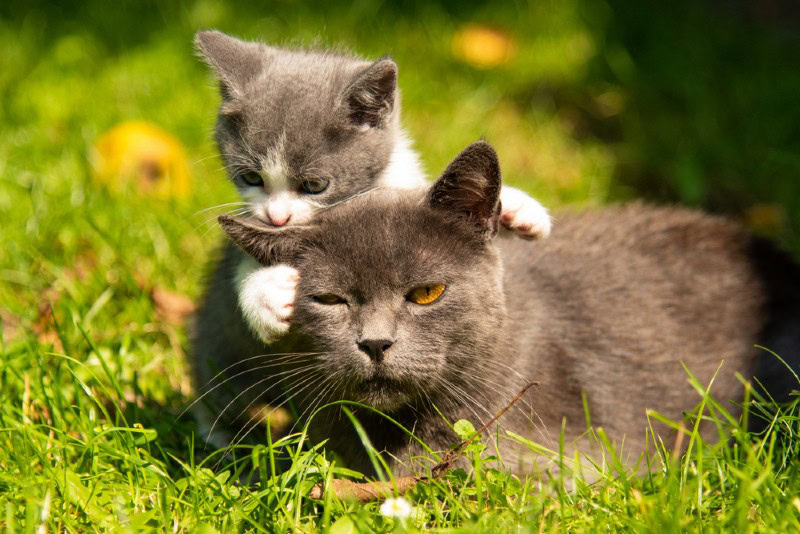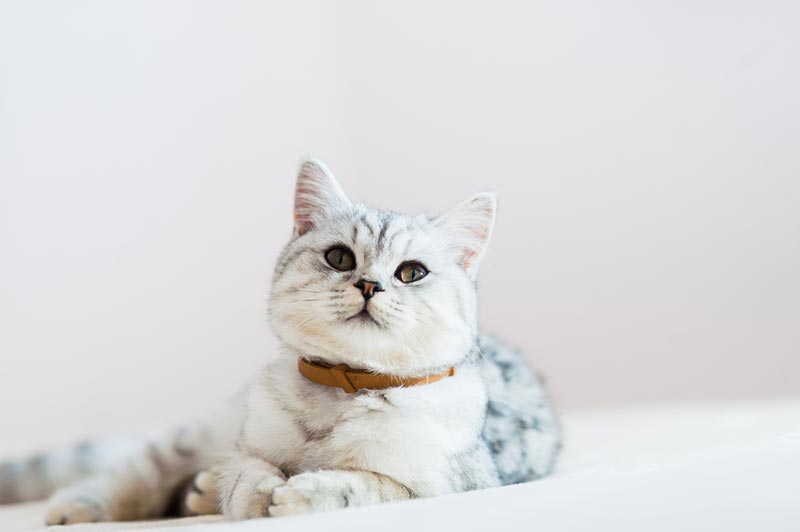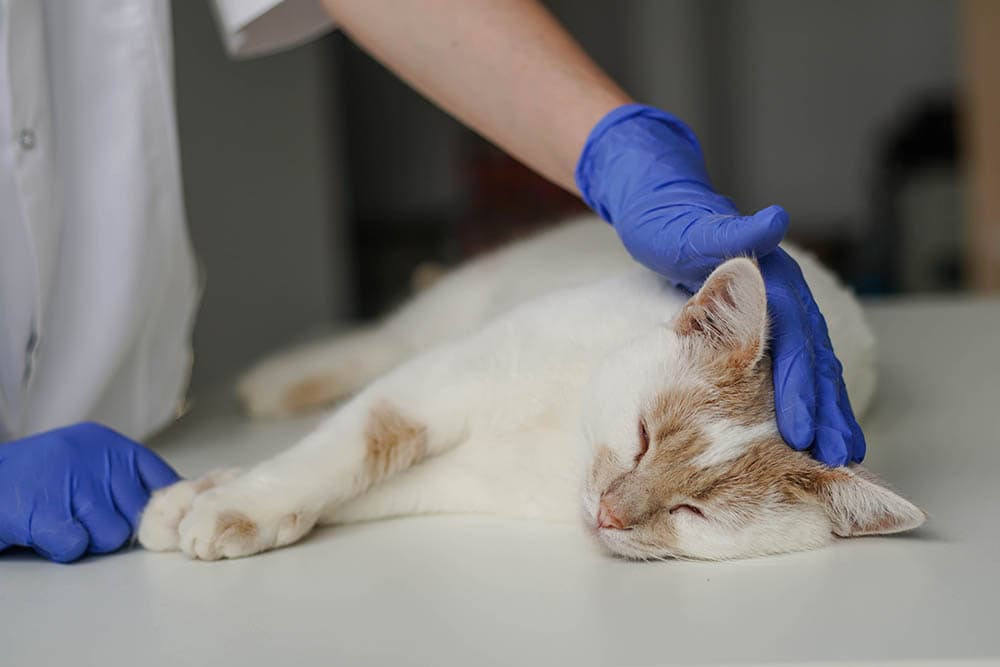How Long Will Catnip Take to Kick In? Vet-Approved Facts, Pros & Cons
Updated on
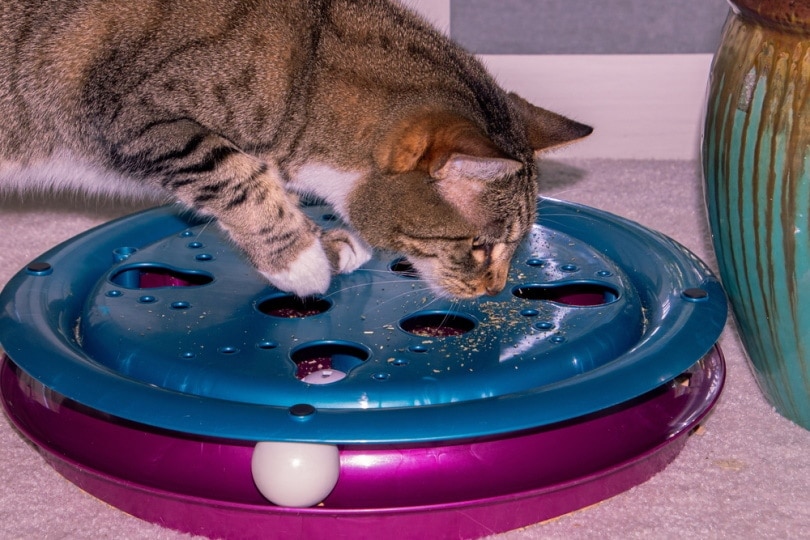
Nepeta cataria, more commonly known as catnip or catmint, is a perennial herb that is native to Europe and Asia. It is capable of inducing euphoria in some felines and has long been a source of entertainment for cat owners around the world.
Does your kitty go cuckoo for catnip? Have you ever wondered what it is about catnip that makes so many cats go wild? Are you curious about how long catnip typically takes to kick in and how long the effects will last? Most cats will experience the effect of catnip immediately.
Keep reading to find the answers to these questions (and more) in this thorough guide on cats and catnip.
How Does Catnip Work?
The catnip plant produces a chemical known as nepetalactone in the bulbs that coat the leaves, seeds, and stems. When these bulbs rupture, the chemical is released into the air.
When cats inhale nepetalactone, it binds to receptors that they have in their noses, which then stimulates the sensory neurons that lead into the brain. The chemical then seems to alter activities throughout several areas of the cat’s brain, including the amygdala and hypothalamus. It is thought that catnip mimics feline pheromones, which is what causes the somewhat euphoric reaction.
Interestingly, the response your cat has to catnip is hereditary. If their parents were part of the 70–80% of cats that the herb works on, chances are your cat will be too.
What to Expect When Your Cat Is on Catnip
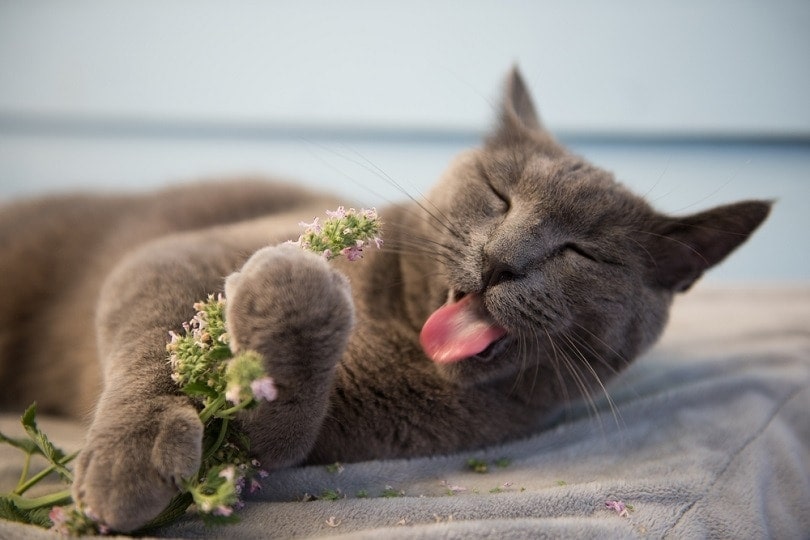
For most cats, the effects of catnip will begin almost immediately, and it doesn’t take much more than a small whiff of it to stimulate their senses.
At first, you’ll notice your cat sniffing at the catnip or even chewing or licking at it. Some people think that cats chew or eat the herb as it bruises the leaves and releases more of the nepetalactone chemical. It seems that sniffing the catnip has more of a stimulant effect, whereas eating it often results in sleepiness and relaxation.
Next, you might witness your kitty rubbing their cheeks onto the floor, flopping their body, or zoning out. They might become more vocal by meowing or growling. Some cats can even become aggressive.
Catnip “sessions” only last around 10 minutes or less before your kitty loses interest. It then takes around 1 to 2 hours for their bodies to become susceptible to the effects of catnip again.
Are There Benefits to Offering My Cat Catnip?
There are definite benefits of offering catnip to your kitty that extend to both you and your pet. Watching your cat when they’re “on” catnip is hilarious. Your kitty’s entire personality might change for the brief time that the herb is working its magic.
For your cat, catnip offers a great enrichment activity. It keeps them active (provided they get the stimulating effect of the herb and not the relaxation effect), which is necessary for all cats, especially those that stay indoors and are more prone to obesity. Catnip can also stimulate their mental well-being, which can lead to them being happier and healthier overall.
Strategic catnip placement can deter bad behavior too. If your cat has taken a liking to destroying your furniture or carpet with their nails, try sprinkling catnip onto their scratching post to entice them to scratch there instead.
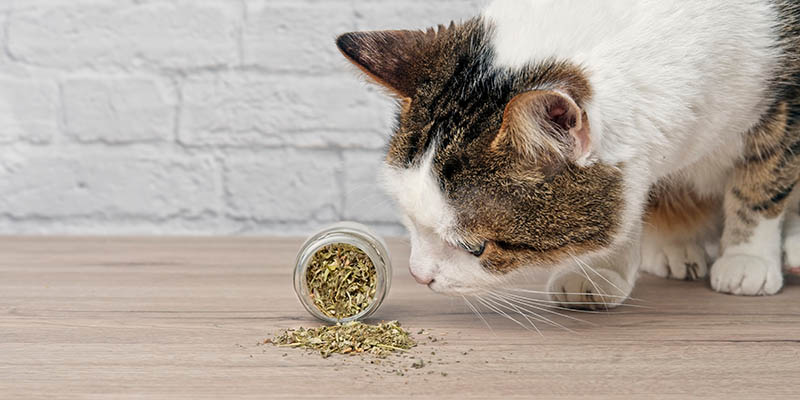
Are There Any Dangers With Catnip?
While catnip is generally considered to be a very safe herb to offer your cat now and then, there are some safety tips you should consider. For example, don’t allow your cat to lick or drink catnip-infused tinctures or sprays. These are meant to be sprayed onto toys or scratching posts and are not designed to be consumed. Also, use caution when offering catnip to your pet if they have a history of aggression. Catnip can lower inhibitions and cause inappropriate aggressive behavior.
You might also use caution when offering the herb to multiple cats. Even if they aren’t typically aggressive, they can become so while on catnip. Instead of making it a free-for-all when you give your pets some catnip, sprinkle a little on their favorite scratching posts or toys, and separate them so they can enjoy their euphoria alone.
Do not offer catnip if your kitty is ill or recovering from surgery. As you already know, some cats can get a little hyperactive while on catnip, which can impede their recovery or even hurt them.
The ASPCA lists catnip as “toxic to cats,” but reactions are usually only noted in situations where cats ingest a lot of the herb. If your kitty has gotten a little too catnip-happy, you might notice gastrointestinal signs like vomiting or diarrhea. Cats are usually pretty good at self-regulating, though, so most won’t overdo it.
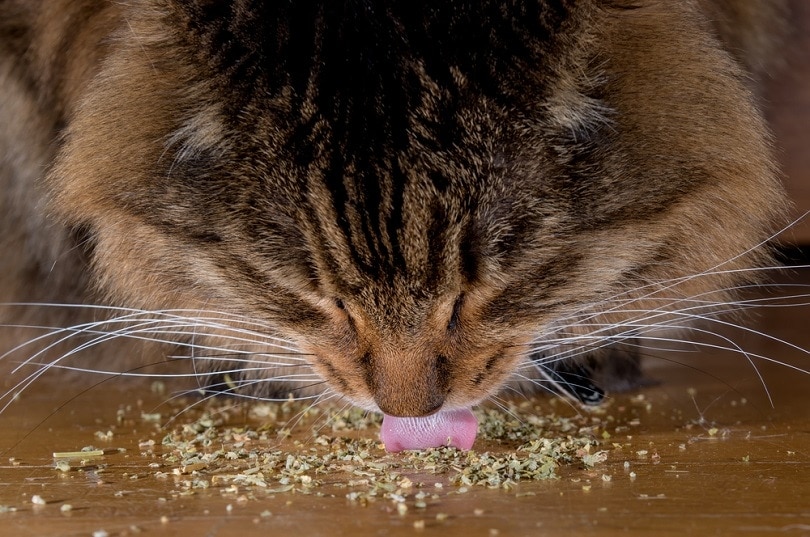
Final Thoughts
Catnip is a fun way to increase physical activity and provide enrichment for your kitty. Plus, it’s very entertaining for you to watch your pet bliss out. As with anything, catnip is best offered in moderation, not only to prevent any gastrointestinal upset but also to keep the activity fun and novel for your kitty.
- See Also: Can Cats Eat Catnip?
Featured Image Credit: tamara321, Shutterstock



